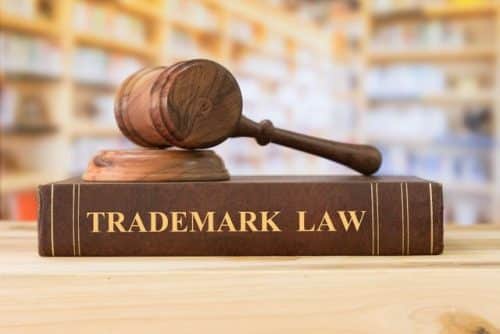A trademark is a word, symbol, phrase, or design, such as a logo, that identifies and distinguishes your company’s goods or services from competitors — and the best method to protect your trademark is to register it with the US Patent and Trademark Office (USPTO).
While it is feasible to register a trademark on your own, most firms, particularly those filing a trademark for the first time, hire a trademark attorney to represent them. Here’s how to discover an excellent trademark lawyer, as well as some tips on how to receive free legal assistance with a trademark application.
Trademark Law
Trademark law protects and enforces the use of words, symbols, or phrases to identify the source of a particular product or service. APPLE®, GOOGLE®, MCDONALD’S®, and MICROSOFT® are some of the most well-known trademarks in the world. Trademarks are governed by state law and the federal Lanham Act, which grants trademark owners exclusive rights to use and register all protectable marks.
A mark is considered protectable if it is distinctive, which means that it may be used to identify the source of a certain good.
Trademark Classifications
Trademark law uses four distinct classifications depending on the relationship between the mark and the connected product to determine whether a mark is distinctive:
- Arbitrary or fanciful (marks like KODAK® and APPLE® that have no inherent relationship to their associated products);
- Suggestive (marks like COPPERTONE® that evoke a characteristic of the associated products);
- Descriptive (marks like HOLIDAY INN® that directly describe a characteristic or feature of the associated products); or
- Generic (terms that describe the general category of the associated products, such as “phone,” “keyboard,” etc.).
The first two types of marks can be protected without demonstrating that they have developed distinctiveness in the minds of consumers, whereas descriptive marks require proof that the consuming public has learned to link the phrase with a certain source. Generic terms are never protected as trademarks because they are required for generic identification of a certain product category.
Read Also: HOW TO TRADEMARK A LOGO: Best US practices, Requirements & What you should know
After acquiring protectable rights in a mark, a trademark owner may enforce those rights by prohibiting the use and/or registration of all subsequent infringing marks. In the United States, the criterion for infringement is “likelihood of confusion,” which implies that customers viewing the respective marks on their connected products are likely to be confused as to the source of such products or the sponsorship or approval of such items. In other words, courts will use a multifactor approach to determine infringement rather than simply comparing the marks to see if they are identical. While the specific considerations vary significantly by jurisdiction, the following elements are frequently considered by courts:
- The vigour of the plaintiff’s trademark;
- The commodities’ relatedness;
- Resemblance of the marks;
- Evidence of actual perplexity;
- Resemblance of marketing channels;
- The level of attention taken by the average buyer;
- Intent of the defendant; and
- The chance of product line expansion.
The protection and enforcement of trademarks are crucial to the success of any business. Trademarks enable consumers to differentiate a company’s products and services from those of its competitors, and they also serve as indicators of the quality of such items and services. Indeed, many companies’ trademark portfolios account for the majority of their company’s value. Please seek the advice of an experienced trademark lawyer to determine the best way to protect your company’s trademarks.
Do I Require the Services of a Trademark Lawyer?
The answer is dependent on your specific scenario. Trademark attorneys have prosecuted trademarks before the United States Patent and Trademark Office (USPTO). Because trademark registration is legal action with rigorous processes and deadlines, a lawyer who is experienced with the process will be able to handle registration more efficiently than you can.
A trademark lawyer can:
- Determine any issues that may occur with your trademark registration. Someone else, for example, may have common law or state trademark rights that aren’t registered with the USPTO and won’t appear when you search the USPTO’s Trademark Electronic Search System. A lawyer can undertake a more comprehensive trademark search.
- Evaluate the power of your trademark and advise you on the best mark to use.
- Describe how you should utilize your mark to ensure optimal protection.
- Prepare and submit a trademark registration application that complies with all USPTO regulations.
- Assist you in determining the likelihood that your trademark registration will be successful.
- Respond to difficulties that arise after your application has been filed and assigned to an examining attorney at the trademark office.
- Assist you in enforcing your trademark in the future. The USPTO does not enforce trademarks; that is the responsibility of the trademark owner. A lawyer can assist you in monitoring new trademark applications or uses of your trademark, as well as taking action to oppose or prohibit potentially infringing usage.
Common Issues When Attempting to Register a Trademark by Oneself
The trademark registration process may appear simple, but the requirements might be complex. As a result, trademark owners may make costly errors that may have been avoided had the application been prepared or examined by a lawyer. Common blunders include:
- Choosing an incorrect filing basis. The use of the mark in commerce and the intent to use the mark in commerce are the two filing grounds. Many people choose the incorrect rationale because they do not comprehend the distinction. When you make this error, you may end up with a registered trademark that provides little or no protection when you try to enforce it.
- Providing an incorrect trademark specimen. You must include a specimen that demonstrates how you really utilize your mark in commerce as part of your application. If you submit the wrong type of specimen, your mark may not be protected.
- Selecting the incorrect trademark class or misidentifying your goods or services. To protect your trademark, you must select a class of products or services and identify the items and services you wish to protect. The classification system can be difficult to understand, and doing it wrong can result in your application being dismissed.
In the end, hiring a lawyer to deal with a badly written application may cost far more than hiring a lawyer to do it right the first time.
What a Trademark Lawyer Can Do For You
The trademark registration process, particularly for first-time applicants, can be lengthy and perplexing. There are numerous deadlines to meet, and the USPTO will not reimburse your registration payments if you make a mistake with your application. As a result, it is prudent to retain the services of a qualified trademark attorney.
A trademark lawyer can guide you through the registration process and handle the following:
- Conducting a trademark search to establish whether your trademark is distinct and eligible for registration with the USPTO.
- Responding to USPTO correspondence or trademark examining attorney concerns to your application
- Filing a foreign trademark application and understanding foreign trademark rules
- Taking action if you suspect that someone is using your trademark without your consent (called trademark infringement).
- Defending yourself and your company if you are accused of infringing on another person’s trademark.
If you decide to engage a lawyer to assist you with your trademark filing, you can discover a good trademark attorney in a variety of places.
How to Find a Trademark Lawyer
If you need a lawyer to assist you with a trademark issue, you’ll need more than just a regular company lawyer. To see your trademark registration or dispute through to a successful conclusion, you’ll need a specialist trademark or intellectual property attorney, someone with specific knowledge.
#1. Recommendations from other small company entrepreneurs
Your fellow small-business owners are frequently the finest source of a superb lawyer. If another company successfully registered their trademark or dealt with another trademark issue with the assistance of a trademark lawyer, request contact information and set up an appointment.
Don’t assume they’ll be qualified or willing to assist you. For example, if the lawyer specializes in a particular area or if your case is more involved, they may decline. However, it is a good place to start.
#2. Business gatherings and activities
Business lawyers are frequently invited to attend and speak at business conferences. If you go to a discussion about intellectual property or trademarks, or if you meet a trademark lawyer at a meet and greet, obtain their business card and arrange an appointment for consultation later.
If you are accepted into a startup incubator, you will have another option for locating a reliable attorney. Just keep in mind that the incubator application process is quite competitive, and tech businesses are frequently chosen.
#3. Bar Organizations
State and local bar associations frequently feature lawyer reference services where you can identify lawyers who specialize in a certain field. These include both online directories and phone numbers where you can seek a recommendation to a trademark lawyer.
#4. Legal services available online
There is a lot of legal assistance available online these days. Several online legal services can connect you with a trademark attorney in your area, and some will provide legal advice on trademark concerns for a modest, fixed fee.
Here are some websites that may be of assistance:
- LegalZoom: This is a low-cost, fixed-fee solution for trademark search, registration, and monitoring. Prices for basic services begin at $199. If you subscribe to LegalZoom’s monthly plan, you will also be connected to a local attorney who can respond to USPTO activities on your behalf.
- Rocket Lawyer: Rocket Lawyer will put you in touch with a local attorney that can assist you with trademark research and registration.
- UpCounsel: UpCounsel is an excellent option for more difficult matters (e.g. filing for multiple trademarks or appealing a refusal of registration). You can outline your legal concern or problem on its website, and UpCounsel will match you with an expert lawyer in its network.
Online legal services like these have made it much easier to find low-cost legal counsel for nearly every aspect of running a business, including trademarks. Just make sure to confirm an attorney’s licensing and read reviews from previous clients before hiring anyone to represent you.
Free Legal Aid
The options listed above are excellent if you have a budget for a lawyer or legal services, but you may not be that fortunate. Maybe you’re not yet profitable, or you’re a brand-new company just getting started. Did you know that you might be able to get free legal help?
Because registering a trademark is such a hard process, several organizations offer free help to small firms, entrepreneurs, and freelancers. If you work in a creative industry, such as music or the arts, free assistance is much more commonly available.
#1. Law School Clinics
Many law schools conduct intellectual property clinics, which can be a valuable resource for small enterprises. Law students engaged in these clinics can file trademark applications and appear before the USPTO on behalf of small-business clients and entrepreneurs who cannot afford expensive legal assistance. Students are supervised by a law professor or more experienced attorneys.
Here is a list of law schools with USPTO-approved IP clinics. Just keep in mind that these are law students with limited experience. If a student is ill-equipped to handle your matter, the law professor or attorney monitoring the case will advise you to seek independent legal counsel.
#2. Pro bono directory of the American Bar Association
The American Bar Association (ABA) maintains an online list for small businesses seeking free legal advice on trademark concerns. Not all states are included, but the most populous ones are. The database contains lawyers and law firms that offer free or low-cost trademark services. Some of the companies are primarily concerned with assisting musicians and artists. In most circumstances, individuals and businesses must earn less than a particular amount of money in order to qualify for free or low-cost assistance.
#3. Pro Bono Clearinghouse of the International Trademark Association
The International Trademark Association’s (INTA) Pro Bono Clearinghouse was established to provide free legal assistance on trademark matters to low-income individuals and charity and charitable organizations with limited operational funds. If you can demonstrate a financial necessity, the INTA will endeavor to connect you with a lawyer or law firm that is an INTA member and can assist you for free.
Questions to ask a Trademark Lawyer
How do you determine which trademark attorney will be the greatest partner for you and your business after using the methods mentioned above to create a shortlist of lawyers? It’s critical to choose properly because obtaining a trademark may be a lengthy process, lasting anywhere from six months to a year on average, and the effort doesn’t end after the trademark is obtained. You or your lawyer will also want to keep an eye on the trademark once it has been registered to ensure that no one else is using it without your authorization.
#1. What are the Trademark Lawyer Fees?
A trademark lawyer can charge between $500 and $2,000 for the entire trademark application procedure, plus an additional $400-$500 if there are any delays or disagreements in your case. In addition to the trademark lawyer’s fees, you’ll have to spend several hundred dollars in government filing fees.
The cost will be determined by the following factors:
- The total number of points you are registering.
- How soon you want to register your trademark.
- Whether the USPTO grants or denies your application.
- The outcomes of your preliminary trademark search.
- Whether you want your registered mark to be watched (to guarantee that other companies aren’t using it).
- Whether you hire an attorney to assist you in maintaining and renewing your trademark.
Make certain that your price agreement is in writing and that you understand exactly what you will be expected to pay. Remember that you may be able to save money by seeking pro bono legal assistance or by using fixed-fee online legal services such as Rocket Lawyer or LegalZoom, both of which are discussed above.
#2. Do you have any prior experience in my field?
When registering a new trademark, industry knowledge can be beneficial. The test for trademark eligibility is whether there is a “likelihood of confusion” between your mark and another mark. If one of your competitors has a similar logo or mark, the likelihood of confusion is considerable. In other words, a restaurant and a doctor’s office using the same trademark are more likely to cause misunderstanding than a restaurant and a doctor’s office using the same mark. As a result, a lawyer with extensive knowledge of your sector is preferable to one who is unfamiliar with the type of work you conduct.
Furthermore, if you work in a creative industry such as music, painting, or design, there may be distinct regulations about when something qualifies as a unique trademark. For example, registering the name of a musical band or a song lyric is subject to tighter regulations than registering a conventional service or commerce trademark.
#3. How much experience do you have?
This is a question you should ask every attorney who represents you for whatever reason. A trademark application, on the other hand, can be exceptionally involved and sets in motion various dates and conditions that you must meet in order to effectively register your trademark.
Look for a trademark lawyer who has experience in the following areas rather than a generic business lawyer:
- Conducting a thorough trademark search.
- In the past, hundreds, if not thousands, of trademarks were successfully registered.
- Responding to USPTO oppositions if you are required to supply additional information or your application is refused.
- Dealing with litigation and other methods of settling trademark issues, such as mediation and arbitration (if you’re employing a trademark attorney because you believe your trademark has been infringed).
- Understanding foreign trademark law is essential if you intend to do business outside of the United States.
#4. How does your Trademark Search Work?
The trademark search is the element of the trademark registration process that can “make or break” your case. This is the stage at which the lawyer searches for other trademarks that may be confusingly similar to yours. It is a common reason for trademark applications being denied.
Most trademark attorneys check the government database for trademarks, but there are other locations to look for trademarks, such as the app store, websites, and “common law” databases. Common law trademarks are trademarks that have not been registered with the government but may still be legally protected since they are actively used to identify products and services.
A qualified attorney will also search state and local trademark databases. Make certain that your trademark attorney understands how to do a thorough trademark search at the start of the registration procedure.
#5. Who will be Assigned to My Case?
When you hire an attorney to work on your case, you are also hiring the rest of their team. This includes law clerks, paralegals, legal secretaries, and business partners who may be assigned to your case. Some attorneys assign a major portion of their work to clerks or paralegals, which can result in mistakes on your trademark application. Inquire about the job that will be delegated, whether the attorney will independently evaluate all work done by paralegals and secretaries, and what the attorney will handle on their own.
#6. How will you keep me updated on the status of my case?
Ascertain that the attorney will keep you informed of the status of your case and that they are aware of your chosen means of communication – phone or email. Typically, the case will begin with an initial in-person consultation, but you may only see the attorney once (especially if your case is pretty straightforward). However, if you do need to contact the lawyer, make sure you know how to reach them quickly.
How can I know if the Lawyer or filing Service I Hired is Legitimate?
Many private companies provide legal services, such as filing aid or reacting to an office action, among other things. Such services may be legal if they are performed under the supervision of a competent US attorney. However, many of these firms are not affiliated with licensed US attorneys and thus cannot legally provide such services. Some provide dubious services, such as proposing to register trademarks in a private registry.
How Much Does It Cost to Register a Trademark for a Company Name, Logo, or Slogan?
The cost of filing a trademark depends on a variety of criteria. In the table below, we have summarized the most relevant price factors:
| Factors | Explanation |
| The trademark application form you choose | USPTO provides two trademark application forms: TEAS Plus—Using this form requires you to provide more detailed information upfront and costs $250 for every class of goods or services TEAS Standard—Using this method requires fewer details and includes an option to add custom descriptions of your products or services. You will pay $350 for every registered class |
| The number of classes of goods or services | Depending on the type of goods or services that you sell, you can select different trademark classes. You will pay for every trademark class that you list in your application |
| Filing basis | You must specify if you have already used the mark in commerce or you intend to in the near future. Intent-to-use applications involve additional costs |
Flat Fee for Trademark Lawyer
Your overall fees will be higher if you engage the services of a trademark attorney. There is no universal set charge for trademark attorneys, however, you may expect to pay between $600 and $3,000. The flat fee will differ from one trademark lawyer or firm to the next.
The services included in the flat fee will also differ. While some attorneys charge a flat cost for a bundle of services, others charge a flat fee for each step of the filing process, such as the USPTO trademark search.
Some of the services that trademark attorneys may give for a fixed charge are as follows:
- Call for pre-registration consultation
- Trademark search at the USPTO
- Responses to non-substantive Office Actions by the USPTO
- If the first mark is unavailable, a free second search is allowed.
- Monitoring of the registration procedure
- Domain name registrations and common law applications
- Search for state trademarks
- Filing of a trademark application
How to Register Your Own Trademark
If you want to handle the registration process on your own, you should first determine whether your mark qualifies for trademark protection. Some of your concepts may be protected by patents, copyright, or a combination of the two. Here’s how you can tell them apart:
- A trademark or service mark is a design or text that distinguishes your goods or services from those of your competitors. If you follow the care requirements, your trademark will endure forever.
- Patent—Protects inventions and production processes, such as a new pharmaceutical drug’s chemical formula. A patent is typically valid for 20 years.
- Copyright—Protects original creative works like books, art, music, and so on. Copyright typically lasts for the creator’s lifetime plus an extra 70 years.
What Can You Trademark?
Although trademark protection legislation allows you to trademark numerous brand aspects, others have special criteria. You cannot, for example, file an application to trademark an idea that you have in your head. What you can trademark is a tangible manifestation of the idea, such as a catchy business name.
How does a trademark lawyer help me with trademark portfolio management?
A trademark attorney can aid in the management of a trademark portfolio by keeping tabs on the registration and use of trademarks, keeping track of when trademarks expire, and assisting in the enforcement of trademark rights. The attorney can also assist with the transfer or assignment of trademarks to third parties and provide guidance on how to best build and grow a trademark portfolio. A trademark attorney can be of great assistance in the important task of managing a trademark portfolio for the purpose of preserving and enforcing trademark rights.
What is the role of a trademark lawyer in trademark assignment?
A trademark attorney can facilitate the assignment of a trademark in order to transfer ownership. Possible tasks include negotiating the assignment agreement’s terms, drafting the required legal documents, and providing advice on the assignment’s potential legal and commercial implications. A trademark attorney can also help you complete the paperwork needed to officially assign your trademark.
How does a trademark lawyer help me with trademark renewal?
An attorney specializing in trademark law can be helpful in renewing a trademark registration by drafting and filing the required renewal application and checking off the necessary boxes on the renewal checklist. The attorney can also help with any problems that may arise during the trademark renewal procedure and provide guidance on how to best maintain and enforce trademark rights.
How does a trademark lawyer help me with trademark cancellation proceedings?
A trademark attorney can help a client defend against a trademark cancellation proceeding by drafting and filing the required legal documents, appearing on the client’s behalf in court or before a trademark office, and providing strategic advice for protecting and enforcing trademark rights. If necessary, the lawyer can also help you appeal a decision, negotiate a settlement, or look into alternative dispute resolution methods.
What is the role of a trademark lawyer in trademark opposition proceedings?
A trademark attorney can help a client who is facing opposition to their trademark by drafting and filing the required legal documents, advocating on their behalf in court or before a trademark office, and providing guidance on how to best protect and enforce their trademark. If necessary, the lawyer can also help you appeal a decision, negotiate a settlement, or look into alternative dispute resolution methods.
Trademark Lawyer FAQs
How much does a trademark lawyer cost?
A trademark lawyer typically charges between $1,000 and $2,000 for the normal trademark process, but disagreements might cost the client an additional $300 to $400 per hour. Some of the trademark lawyer fees you may encounter are as follows: Fees for filing a trademark application.
What does a trademark lawyer do?
A trademark attorney’s responsibilities include advising on the adoption and selection of new trademarks; filing and prosecuting applications to register trademarks; advising on the use and registration of trademarks; handling trademark oppositions, revocations, invalidations, and assignments; and conducting searches.
Can any attorney do trademark?
Only an attorney who is an active member in good standing of the bar of the highest court of any U.S. state or territory can represent you in a trademark application, registration, or TTAB case at the USPTO, according to USPTO regulations.
How long does trademark last?
A federal trademark in the United States has the potential to last in perpetuity, but it must be renewed every ten years. If the mark is still being used during the fifth and sixth years after registration, the registration can be renewed.
Related Articles
- HOW TO TRADEMARK A LOGO: Best US practices, Requirements & What you should know
- How To Trademark a Name: Importance, Tips & All You Need
- REALTOR TRADEMARK: Best Practices, Rules & All You Need
- How to Trademark a Phrase or a Slogan in the US (+ Free Tips)
- Intangible Property: What Is Intangible Property (+ Practical Examples)






